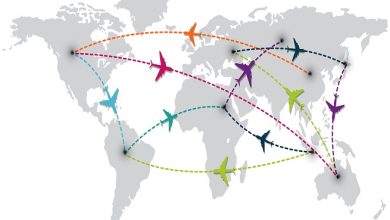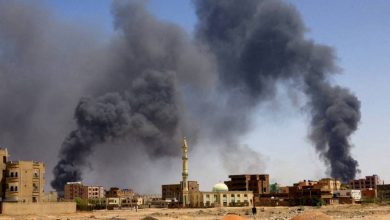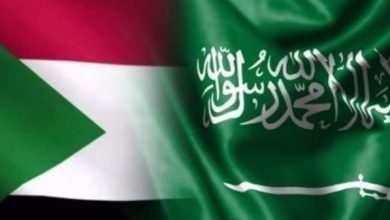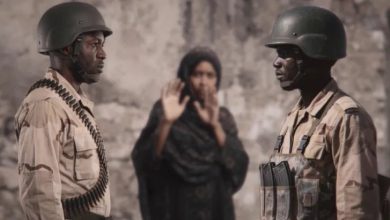Popular Resistance … Variables in Sudan War
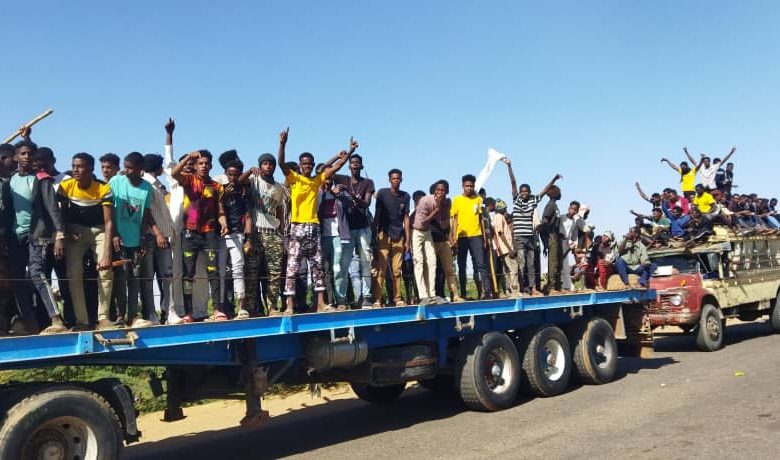
Report – Sudan Events
Observers described the entry of the “armed popular resistance” into the war that has been taking place in Sudan between the army and the Rapid Support Militia (RSF) since last April, as an important variable that will make a big difference.
There were calls in the states to mobilize, train and arm citizens, and the city of Shendi, in the River Nile State, today (Thursday) witnessed a huge gathering of thousands of citizens carrying weapons with the slogan (One Army, One People), to confirm their stand with the armed forces, and chanting national and jihadist songs in preparation to confront the militia.
The states of Gezira, White Nile, Sinnar, Gedaref, North , Kassala and the Red Sea had previously launched the popular resistance project, and found support from official bodies and civil and popular leaders.
A military source confirmed to (Sudan Events) the support for this trend and the feasibility and importance of the popular role in changing the balance of military operations and supporting the army, because the popular resistance fights the war in a different way and with a different weapon, which contributes to increasing the secure areas, but he warned of the necessity of a level of reasonable training, coordination and exchange of information and experiences with the army and regular bodies so that “unexpected things” do not happen.
Necessary action
In this context, journalist and political analyst Ahmed Musa Omer, the Lawyer said that the idea of popular resistance came as a result of the repeated violations of RSF in locations where it is difficult for the armed forces to enter into direct confrontations due to their concern for the safety of the citizen and public and private money.
He added to (Sudan Events): “The militia learned this and began moving among citizens to use them as human shields against ground attacks and air strikes, which obliged citizens in different regions to organize into popular resistance committees to defend their lives, money, and honor in areas where the movement of the armed forces is difficult.” This came as a result of the clear shift from an early stage in the militia’s military methodology, which turned the matter into a direct confrontation between itself and the unarmed citizens, so it became inevitable for the citizens to arm themselves and mobilize the people to defend themselves.”
Making a difference
Musa agreed with the view that this move would be useful and impact the balance of military operations, and said that this matter – certainly – will make a difference in military operations by narrowing the areas of expansion of the militia due to the popular military deployment, which is distinguished by its knowledge of the geography in which it fights, which is a friendly environment for them, in contrast to the ignorance of the militia except through the reports of their assistants.
He added: “From another angle, this limits the role of the forces supporting the militia in transmitting information without taking any real action that brings them into confrontations with their people from the Popular Resistance Committees, and finally, it will reduce the effort required of the official military institution in securing vast areas that needed a large number of soldiers and officers based on the perspective that the people of each region will protect their region.”
Musa noted that the organization of these large numbers strengthens the cohesion of mobilization behind the military institution, with these committees becoming a paramilitary force and the definite support of their people behind them.
Correct the negatives
Observers were afraid of the dangers of the spread of weapons among citizens, which is a justified fear to some extent. Ahmed Musa believes that the negative aspects are that the extensive presence of weapons in the hands of citizens becomes a major security threat and raises the level of danger, and the movement of the mobilized with the military force may be an obstacle to military paces and plans.
But he stressed the possibility of redressing this by appointing serving or former military supervisors in each region to organize the work of the groups, develop plans for them, supervise their implementation, rehabilitate, train, develop and raise the capabilities of the mobilized, and at that time the percentage of those who are with the Army and carrying weapons will be many times greater than those against them, which will change many of the balances of force, particularly with the horizontal spread of the RSF militia in the villages and hamlets of Gezira.
